Scientific steering committee
Keith Criddle, University of Alaska, USA
Luc Doyen, CNRS, France
Stewart Frusher, University of Tasmania, Australia
Jan Jaap Poos, Wageningen UR, The Netherlands
Simon Jennings, CEFAS, UK
Marloes Kraan, IMARES Wageningen UR, The Netherlands
Jason Link, NOAA, USA
Doug Lipton, NOAA, USA
Cristina Pita, University of Aveiro, Portugal
Jake Rice, DFO, Canada
Jörn Schmidt, University of Kiel, Germany
David C Smith, CSIRO, Australia
Tony Smith, CSIRO, Australia
Olivier Thébaud, Ifremer, France
Organising committee
Denis Bailly, Université de Brest, France
Annie Cudennec, Université de Brest, France
Luc Doyen, CNRS, France
Séverine Julien, Université de Brest, France
Pascal Le Floc'h, Université de Brest, France
Sophie Monge, Ifremer, France
Yves-Marie Paulet, Université de Brest, France
Jan Jaap Poos, Wageningen UR, The Netherlands
Jörn Schmidt, University of Kiel, Germany
Olivier Thébaud, Ifremer, France

Dr. Keith R. Criddle is the Ted Stevens Distinguished Professor of Marine Policy at the Juneau Center for Fisheries and Ocean Science of the University of Alaska Fairbanks, USA. His research explores the intersection between natural sciences, economics, and public policy, and is driven by an interest in the sustainable management of living marine resources. He directs graduate projects in bioeconomics, statistical inference, and policy analysis and teaches courses in a range of topics from time series statistics to economic development for fishery dependent communities.
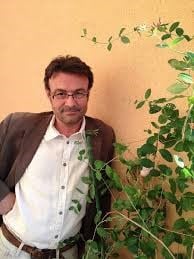
Luc Doyen, is the Director of Research at the Centre National de la Recherche Scientifique (CNRS), France where he is involved with bio-economic modelling, viable management of biodiversity, and the mathematics of sustainability. He is now affiliated to the Gretha (Research Group Theoretical and Applied Economics) at the University of Bordeaux after spending 10 years in a laboratory dedicated to ecology and conservation biology at the Museum of Natural History in Paris. His publications, collaborative network, tutoring (6 doctorates) reflect the scientific excellence, international dimensions and interdisciplinarity of his work at the interface between economics, ecology, mathematics and computer sciences. He is a reviewer of numerous international journals and has participated in various national and international committees for the evaluation of research, being on the board of the Resource Modelling Association (RMA) and a member of the SIAM network SIAG-MPE (Mathematics of Planet Earth). Luc also belongs to the Scientific Committee of the scenario modelling and biodiversity flagship programme for the Fondation Recherche Biodiversité (FRB).

Professor Stewart Frusher is the director of the Centre for Marine Socioecology, a joint initiative between the University of Tasmania, CSIRO and the Australian Antarctic Division. A key driver for his research is his passion for demonstrating how sustainable marine resources play a vital role in society. He started his career working for the Department of Primary Industries in Papua New Guinea. He worked at the Australian Institute of Marine Science, joining the Tasmanian Department of Primary Industries in 1992 and then the Tasmanian Aquaculture and Fisheries Institute at the University of Tasmania in 1998. Over the past few decades his research portfolio has shifted from leading programmes focused on developing methods for sustainable assessment of key commercial species, to those evaluating the effects of fishing on marine ecosystems and to understanding the impacts of climate change on marine resources. Since the start of his research career Stewart was exposed to the human side of fishing and has subsequently championed the need to integrate human and biophysical systems. He has also been instrumental in the development of inter- and transdisciplinary research teams.
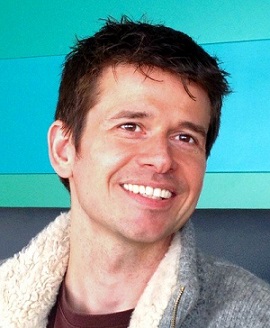
Jan Jaap Poos is a marine biologist at IMARES Wageningen UR, the Netherlands. His research focuses on population dynamics of marine resources, the adaptive behaviour of resource users, and interaction between these resources and their users. Key areas of application include the population dynamics of demersal fish species, demersal trawl fisheries, and individual quota systems. Jan Jaap maintains active engagement in a variety of advisory roles both nationally and internationally. He is currently one of the members of the ICES Science Committee (SCICOM).

Simon Jennings is a Lead Adviser at the Centre for Environment, Fisheries and Aquaculture Science (CEFAS), Lowestoft, UK, and the Honorary Chair of Environmental Sciences at the University of East Anglia. He has worked nationally and internationally as an advisor and research scientist on environmental management and fisheries issues. Simon remains active as a research scientist, working to further understanding of marine systems and their interactions with people and the environment. This understanding is being used to improve monitoring, assessment and management methods. Publications.
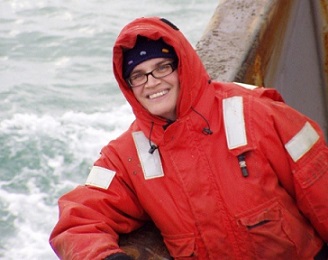
Dr. Marloes Kraan is a researcher at IMARES Wageningen UR, the Netherlands. She has thirteen years of experience in fisheries governance, both from a (applied) scientific position as well as from the policy side. After doing her PhD research on artisanal fishermen in Ghana and the role they play in fisheries governance, she worked at the Dutch Fish Product Board as a policy officer. As a result, she developed a good insight into Dutch and European fisheries and, after some years of more policy-oriented work, started working at IMARES. Marloes has experience in working in an interdisciplinary environment through which she is grounded in the social science perspective to maritime governance. At IMARES she has broadened her expertise from fisheries to maritime governance. She has participated in FP7 framework EU projects such as GAP2, MyFish, and ODEMM, as well as the Damara project in the Celtic Sea. She is also involved in research for the Dutch government relating to Marine Protected Areas and the MSFD, the landing obligation,) and the cod monitoring programme. She is an associate researcher and secretary of the board of MARE, the Centre for Maritime Research. Marloes contributes to increasing inter- or transdisciplinarity in maritime research at IMARES and ICES.

Dr Jason Link is NOAA Fisheries' first-ever Senior Scientist for Ecosystem Management. In this role, Jason is the agency's senior-most authority on ecosystem science, conducting research and coordinating activities of NOAA Fisheries' science support for effective ecosystem-based management. He leads approaches and models to support development of ecosystem-based management plans throughout the agency. Jason has extensive experience working in marine and Great Lakes systems around the world. He is an adjunct professor at many regional universities and is involved in and chairs several national and international working groups, review panels, and committees dealing with fisheries ecosystem issues, He is a commonly-requested speaker at various events. He received his B.S. from Central Michigan University and his Ph.D. from Michigan Technological University. He received the Fisheries Society of the British Isles Medal for significant advances in fisheries science.

Dr Doug Lipton, Senior Research Economist at NOAA Fisheries
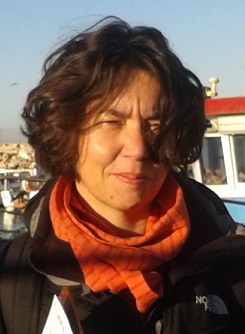
Dr Cristina Pita holds a PhD in social and environmental sustainability and is currently an Assistant Researcher at the Department of Environment and Planning & Centre for Environmental and Marine Studies (CESAM), at the University of Aveiro, Portugal. Her primary areas of research focus on the sustainable use of marine resources, fisheries and coastal governance, and fisheries management and socioeconomics, as well as coastal community development, Marine Protected Areas, and coastal tourism and ecotourism. Over the past 15 years, she has conducted research on these topics in several European countries.
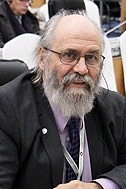
Jake Rice is Chief Scientist – Emeritus for the Department of Fisheries and Oceans Canada. Over his career he worked on many aspects of ecosystem approaches and governance of fisheries and marine biodiversity, and the science – policy interface in marine issues, with over 250 scientific and technical publications. He has participated in expert workshops and been a delegate at many marine intergovernmental organizations. He was a member of the Group of Experts for the UN Regular Process and co-chairs the IPBES Regional Assessment for the Americas. He has held many roles in ICES, including the Chair of the Consultative Committee.
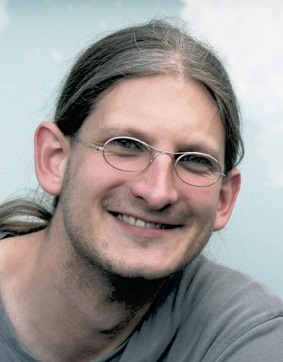
Jörn Schmidt studied biology at the University of Hannover, and in 2006 received his doctorate in fisheries biology at the IFM-GEOMAR in Kiel. He has worked in the Department of Economics at the University of Kiel, Germany since 2009, and is the work package leader within several BMBF and EU funded projects. A multidisciplinary specialist, Jörn is currently working in the realms of social-ecological systems and ocean sustainability. This includes questions about transitioning from single to multi-species fisheries management, communication with stakeholders, the use of games for education and communication (like ecoOcean) and the application of coupled models in developing practical management advice. In 2012 he became the German representative in the ICES Science Committee (SCICOM) and is a member of the ICES Publication and Communications Group (PUBCOM). He is co-chair of the ICES Benchmark Steering Group (BSG) and the Strategic Initiative on the Human Dimension in Integrated Ecosystem Assessments (SIHD). He is also on the editorial board of the ICES Journal of Marine Science.
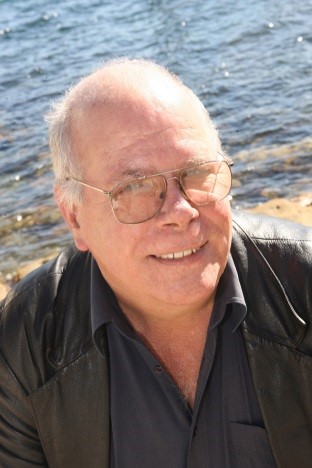
David
Smith
leads the Marine Resources and Industries
Research Program of
CSIRO Oceans and Atmosphere. The interplay of science and
policy is of particular interest to Dr Smith and he has been a member of, or
chaired, a number of resource assessment groups as well as sitting on
Management Advisory Committees. He currently Chairs the Research Providers
Network, a committee charged with improving collaboration and co-ordination of
fisheries and aquaculture research in Australia. He initiated the
establishment of the Centre for Marine Socio-ecology at the University of Tasmania, a collaboration
between CSIRO, the University and the Australian Antarctic Division.

Tony Smith is a fisheries scientist with a background in ecology and mathematics. His research interests include population and ecosystem modelling, management strategy evaluation, the development of tools to support ecosystem-based fisheries management, and the performance of fishery management systems. Tony has studied fisheries in most parts of the world and is currently based in Hobart, Australia, where he is a Chief Research Scientist with the CSIRO Oceans and Atmosphere Flagship. He is also an Affiliate Professor at the School of Aquatic and Fishery Sciences at the University of Washington in Seattle, USA.
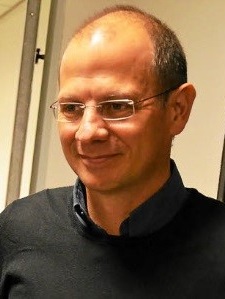
Olivier Thébaud is a resource and environmental economist. His research focuses on the development of decision-support approaches and tools for the management of coastal and marine resources, including ecological-economic modelling, and the economics of ecosystem-based approaches to natural resource management. Key areas of application include the regulation of commercial and recreational fisheries, aquaculture, and multiple ecosystem uses and coastal hazards, as well as biodiversity conservation policies including Marine Protected Areas. Olivier currently leads the Economics Unit of the French Marine Research Institute Ifremer, and the joint research unit AMURE. He is also an adjunct professor with the Queensland University of Technology, Brisbane, Australia. Publications.

Dr. Denis Bailly is a senior lecturer in economics at the University of Western Brittany (UBO), France and the deputy director of the joint research unit AMURE. He has conducted research on the economics of aquaculture development and environmental sustainability in Europe and Asia as well as on integrated coastal zone management and system modelling supporting environmental policy. He was the scientific co-coordinator for the EU research project SPICOSA, which developed a System Approach Framework for science and policy integration to support the environmental management of coastal zones. He coordinates the French initiative for the creation of a United Nations University (UNU) institute on science and governance of ocean and coasts, also in Brest.

Annie Cudennec a professor of public law at the University of Western Brittany, France and is deputy director of the joint research unit AMURE, a laboratory at the university's European Institute for Marine Studies. She holds a European Jean Monnet Chair in the law of the sea. Annie has published papers on European integrated maritime policy, marine resource management, marine spatial planning, marine renewable energy, terrorism, and maritime piracy.

Pascal Le Floc'h is an assistant professor at the University of Western Brittany (UBO), France and a permanent member of the joint research unit AMURE. He applies analysis to the management of fisheries and economic performance of fleets. He is the coordinator of the research group of the Regional observatory of fisheries in Brittany, and is currently involved in European research projects on economic indicators in fisheries.
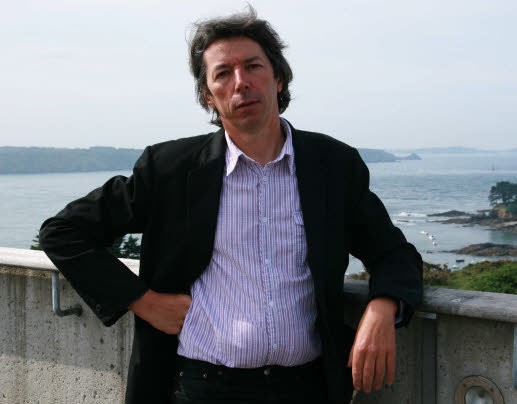
Yves-Marie Paulet is a professor at the European Institute for Marine Studies (IUEM) of the University of Western Brittany, France. He is a permanent member of the Marine Environmental Sciences Laboratory (LEMAR).

